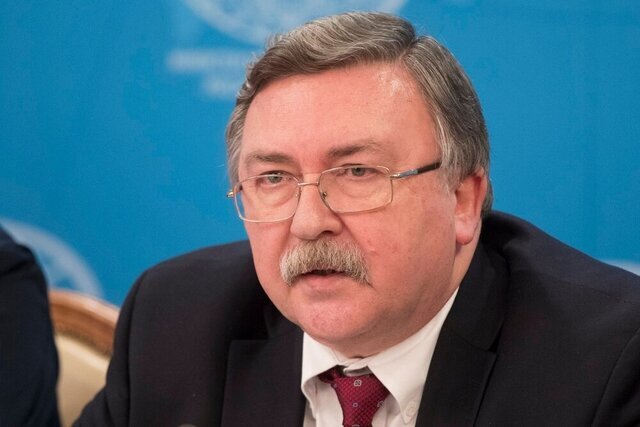Ways and means to improve situation around nuclear deal to be discussed: Russian diplomat

Mikhail Ulyanov, Russia’s permanent representative to the Vienna-based international organizations, has said that ways and means to improve situation around the 2015 nuclear deal will be discussed at the Joint Commission of the Joint Comprehensive Plan of Action (JCPOA) on Wednesday.
“Participants of #IranDeal will meet the day after tomorrow at the level of political directors. Ways and means to improve the situation within and around #JCPOA will be discussed,” Ulyanov tweeted on Monday.
The European Union said on Monday that the JCPOA Joint Commission will meet in Vienna on Wednesday.
“A meeting of the Joint Commission of the Joint Comprehensive Plan of Action (JCPOA) will take place in Vienna on 26 February. The Joint Commission will be chaired on behalf of the EU High Representative Josep Borrell Fontelles by EEAS Secretary General Helga Maria Schmid and will be attended by representatives of China, France, Germany, Russia, United Kingdom and Iran,” the official website of the European Union said in a statement.
The previous meeting of the commission was held in December 2019.
“All participants emphasized the key importance of full and effective implementation by all sides as well as their determination to pursue all efforts to preserve the agreement,” read the statement published on the European Union official website after the meeting of the JCPOA joint commission.
U.S. President Donald Trump quit the nuclear deal, known as the JCPOA, in May 2018 and introduced the harshest ever sanctions on Iran.
EU foreign policy chief Josep Borrell said on February 16 that he will remain committed to keep the JCPOA alive.
“As coordinator I remain committed to listen to all sides and keep the #NuclearDeal alive,” he said in a tweet.
In May 2019 Iran started to reduce its commitments to the JCPOA at bi-monthly intervals in response to the abrogation of the pact by the U.S. coupled with the European Union’s inaction to shield Iran’s economy from sanctions.
Zarif said on February 14 that Iran’s decisions to reduce JCPOA commitments are reversible if Europe takes “meaningful” steps in preserving the JCPOA.
Tehran’s moves to ramp-up its nuclear program in the past few months are reversible “providing that Europe takes steps that are meaningful,” Zarif told reporters on the sidelines of the Munich Security Conference, according to AP.
Borrell has said that Europe must ensure Iran’s benefits from the nuclear deal if it wants the deal to survive.
“If we want the Iran nuclear deal to survive, we need to ensure that Iran benefits if it returns to full compliance,” he wrote in an article in the Project Syndicate published on February 8.
Borrell was notified in January by Paris, London, and Berlin that they had triggered the resolution dispute mechanism.
He has said that the EU will extend indefinitely the time limit to resolve disputes in the nuclear deal to avoid having to go to the UN Security Council or triggering new sanctions.
“There is an agreement that more time is needed due to the complexity of the issues involved. The timeline is therefore extended,” Borrell said in a statement on January 24.
Zarif also held talks with the Dutch and Austrian foreign ministers who visited Tehran on Saturday and Sunday, discussing the most pressing issues, chief among them the nuclear deal.
The two top European diplomats also held separate talks with President Hassan Rouhani.
In his meeting with the Dutch Foreign Minister Stef Blok on Saturday, Rouhani said Iran has not closed the path of dialogue with the EU.
In his meeting with Austrian Foreign Minister Alexander Schallenberg on Sunday, Rouhani also said, “The European Union is expected to stand up to the U.S. illegal measures.”
NA/PA
Leave a Comment